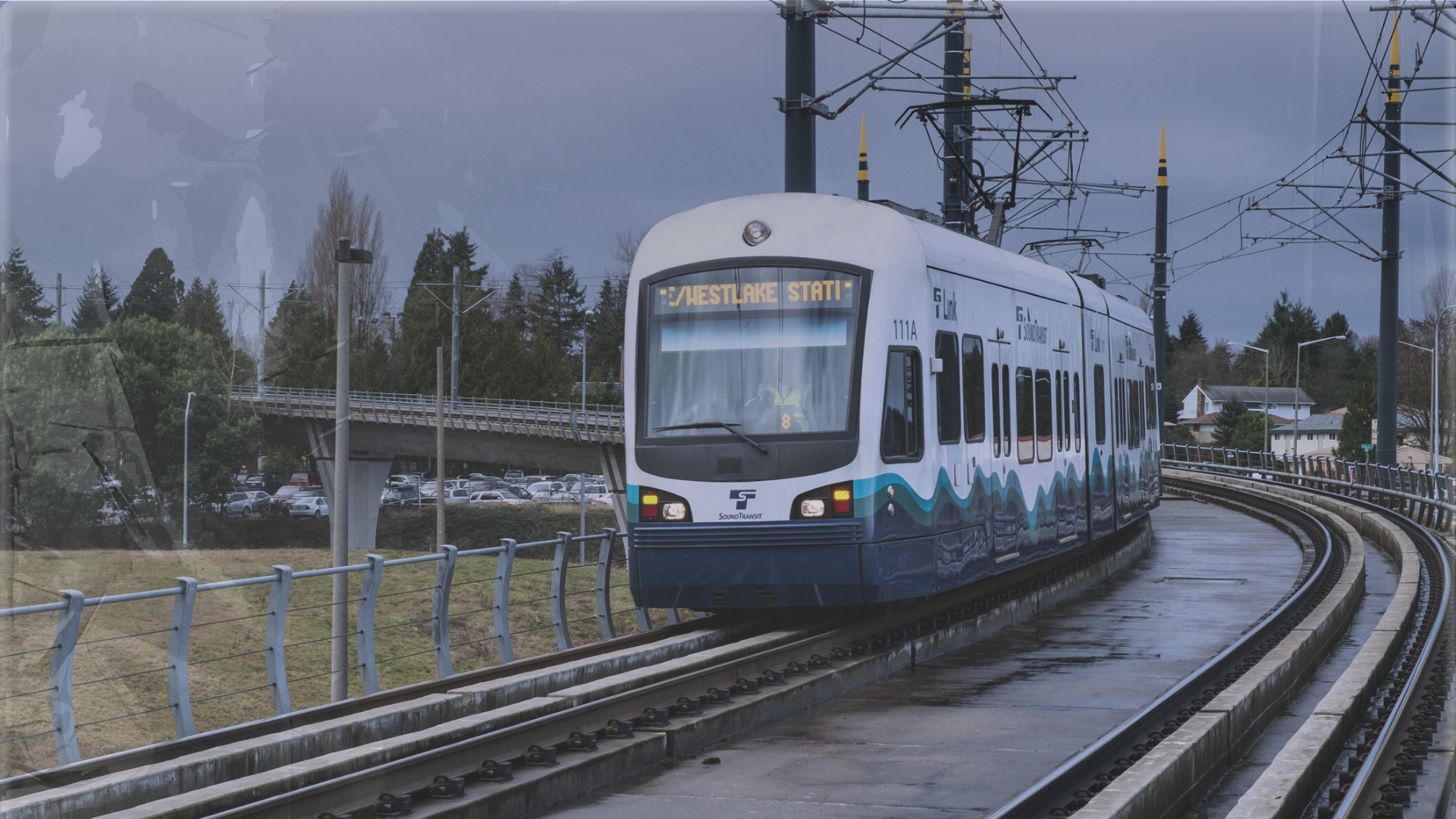On September 26th, the Senate Committee on Law and Justice held their first investigatory hearing on Sound Transit. Two allegations were on the table:
First, legislators say Sound Transit’s authorization to collect up to 0.8 percent in additional car tab fees was drafted in an unconstitutional way.
Second, legislators say Sound Transit officials repeatedly said they wanted $15 billion in maximum taxing authority to extend light rail to Tacoma and Everett. Lawmakers had no reason to think Sound Transit’s tax request would extend beyond 15 years and to $28 billion, so they didn’t limit the time period for the authorization.
Was the tax authorization constitutional?
On the constitutionality of the statute that increased Sound Transit’s taxing authority, David DeWolf, Gonzaga Law School professor emeritus, provided a compelling analysis of the provisions laid out in RCW 81.104.160, regarding the motor vehicle excise tax for regional transit authorities.
The relevant section of the constitution is Article II, Section 37, which states: “No act shall ever be revised or amended by mere reference to its title, but the act shall be set forth at full length.” Professor DeWolf shared that the purpose of Article II, Section 37 as explained by our Supreme Court, is “to ensure disclosure of the general effect of the new legislation and to show its specific impact on existing laws in order to avoid fraud or deception.
He argued that Sound Transit’s drafted language for the authorization was incomplete, as it referred “only to the entire chapter of RCW 82.44, without specifying the particular section that contained the schedule for the excise taxes.” (The outdated, repealed depreciation schedule from 1996 was RCW 82.44.041. The more modest depreciation schedule in state law is RCW 82.44.035. Sound Transit uses the repealed schedule that inflates vehicle values and allows them to take more in taxes from drivers.)
When making changes to an existing law, new language should refer to the full statute that is being changed, even if that statute is no longer in state law. Sound Transit chose not to do that, only referring to RCW 82.44 as it existed in 1996, with no explicit reference to the repealed section.
The lack of clarity in the authorization may lead some to think Sound Transit was intentionally vague, making it difficult for either legislators or voters to understand that car tab taxes would rely on a severely inflated vehicle depreciation schedule.
To make matters more complicated, there is nothing in a proposed bill that would inform legislators whether or not a section of statute has been repealed. This was confirmed by our state’s Code Reviser, Kyle Thiessen, who also testified.
So, to understand the value of your vehicle and the methodology Sound Transit chose to use in the tax authorization, the public would have to take extra steps or have some working knowledge of repealed and current RCWs. While the court would have to decide whether or not the tax authorization is in fact constitutionally drafted, it seems fair to say it certainly wasn’t clear or transparent to either lawmakers or the public.
Did Sound Transit mislead legislators to believe the agency wanted a maximum of $15 billion in taxing authority?
This part of the hearing stood out because even after being cornered with their own press releases and talking points, Sound Transit staff doubled down on their narrative that their communication with legislators and the public was clear as day. This consistent dismissal of lawmakers and voters’ anger and frustration ultimately hurts, not helps, Sound Transit.
During the hearing, legislators argued that Sound Transit officials repeatedly said they were seeking $15 billion in full taxing authority. When asked if they could point to any document in 2015 where they mention seeking taxing authority beyond that $15 billion – no answer.
As recently stated by The Seattle Times Editorial Board, “lawmakers are right to be examining how ST3 ballooned from the $15 billion measure they thought they authorized in 2015 to the $54 billion plan on last November’s ballot.”
During the hearing, Sound Transit staff repeatedly said they were seeking taxing authority using three different revenue tools. “Then why refer to the full $15 billion?” they were asked. Sound Transit proceeded to argue that it was just shorthand for what they needed (which would later become $28 billion in tax revenue).
The argument that $15 billion in full taxing authority was an imprecise shorthand for what Sound Transit wanted quickly fell apart when Sound Transit staff were presented with their own press release from November 2014. Although the press release states three “revenue tools” for ST3 that include property, sales and car tab hikes, it also states that the Board has “flexibility to propose lower amounts.”
Sound Transit adds that the maximum of $15 billion is more than enough to cover what they want:
“Cumulatively, the revenue authority requested could generate a maximum of approximately $15 billion in new revenues over a 15-year period. That would more than cover the approximately $9 billion in new revenues needed to support a 15-year package roughly comparable to the 2008 Sound Transit 2 measure, and would provide flexibility to discuss additional projects and services.”
It is intellectually dishonest for Sound Transit to say that $15 billion is both the maximum they would need, but is also shorthand for $28 billion, an 87% increase in tax revenue. It can’t be both.
During the long line of questions, one of Sound Transit’s staff insisted that the Sound Transit Board was aware of what they were seeking. I expect this is exactly why people feel deceived. How Sound Transit interprets $15 billion, or how they interpret “vehicle value,” was never made clear to legislators and voters who trusted the agency was being fully transparent. It seems that trust was misplaced.
The public will have an opportunity to learn more about Sound Transit’s pursuit of tax dollars in the second and final investigatory hearing next Thursday, October 5th. Lawmakers will investigate whether or not Sound Transit illegally participated in the Sound Transit 3 campaign.




